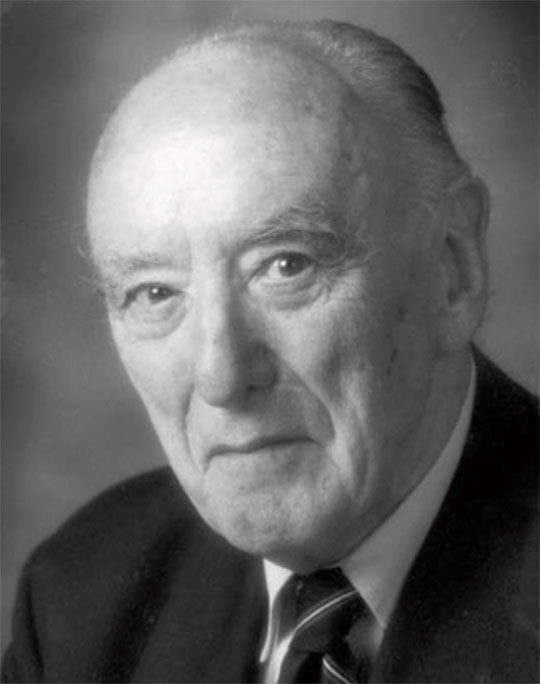Frans Louis Henri Marie Stumpers was born in Eindhoven, Netherlands, on 30 August 1911. (1) He was champion of the Eindhoven Chess Club in 1938, 1939, 1946, 1947, 1948, 1949, 1951, 1952, 1953, 1955, 1957, 1958, 1961 and 1963, (2) and champion of the North Brabant Chess Federation (Noord Brabantse Schaak Bond, NBSB) in 1934, 1935, 1936, 1937, 1938, 1939, 1940, 1941, 1942, 1943, 1944, 1946, 1948, 1949, 1950, 1951, 1952, 1953, 1954, 1955, 1959, 1961, 1962, 1963, 1964, 1965, 1966 and 1967. (3) Stumpers participated in five Dutch Chess Championships, with his high-water mark a fourth place finish in 1948, (4) and represented his country at the 1st European Team Championship in Vienna in 1957 (two games, vs Josef Platt and Max Dorn). (5) From 1945 until about 1956, he was first Secretary and then Chairman of the NBSB. (3)
Stumpers was a physicist, and worked for the Philips company as an assistant from 1928. During 1934-1937, he studied at the University of Utrecht, where he took the master's degree. (6) In 1938 Stumpers was again employed at Philips, (6) and at a tournament in 1942, he supplied the hungry chess players with food from his employer. (3) After the war, Stumpers made a career in physics, with patents and awards on information ("radio") technology. He received degrees from several universities and colleges, including in Poland and Japan. (1, 3, 6) Stumpers retired from Philips in 1972, but continued teaching, (6) partly as professor at the University of Utrecht (1977-1981). (7) He was also Vice President (1975-1981) and Honorary President (1990-2003) of URSI, the International Union of Radio Science. (8)
Louis Stumpers married Mieke Driessen in 1954. They had five children, three girls and two boys. (6)
1) Online Familieberichten 1.0 (2016), http://www.online-familieberichten...., Digitaal Tijdschrift, 5 (255), http://www.geneaservice.nl/ar/2003/...
2) Eindhovense Schaakvereniging (2016), http://www.eindhovenseschaakverenig...
3) Noord Brabantse Schaak Bond (2016), http://www.nbsb.nl/pkalgemeen/pk-er... Their main page: http://www.nbsb.nl.
4) Schaaksite.nl (2016), http://www.schaaksite.nl/2016/01/01...
5) Olimpbase, http://www.olimpbase.org/1957eq/195...
6) K. Teer, Levensbericht F. L. H. M. Stumpers, in: Levensberichten en herdenkingen, 2004, Amsterdam, pp. 90-97, http://www.dwc.knaw.nl/DL/levensber... Also available at http://www.hagenbeuk.nl/wp-content/...
7) Catalogus Professorum Academiæ Rheno-Traiectinæ, https://profs.library.uu.nl/index.p...
8) URSI websites (2016), http://www.ursi.org/en/ursi_structu... and http://www.ursi.org/en/ursi_structu...
Suggested reading: Eindhovense Schaakvereniging 100 jaar 1915-2015, by Jules Welling. Stumpers' doctoral thesis Eenige onderzoekingen over trillingen met frequentiemodulatie (Studies on Vibration with Frequency Modulation) is found at http://repository.tudelft.nl/island...
This text by User: Tabanus. The photo was taken from http://www.dwc.knaw.nl.







